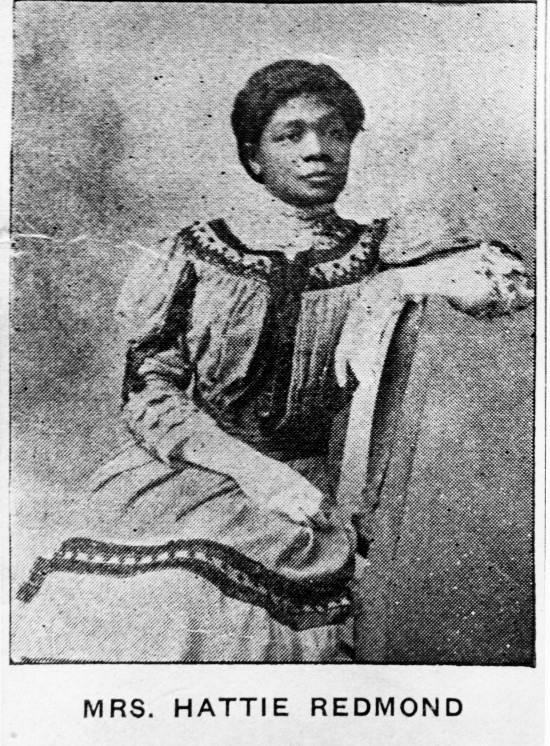Meet Harriet “Hattie” Redmond (1862-1952)
By Cathy Meyer

Courtesy Oreg. Hist. Soc. Research Library, bb09628
As I attempted to educate myself about Oregon history, I found inspiring stories of women in our “backyard” fighting for the right to vote. Even though Black women were excluded from white suffrage groups, the impact of their support to the movement was significant. In 1896, African American women organized local women’s clubs and eventually on the National scale with Mary Church Terrell as the first president of the National Association of Colored Women. In 1916, the NACW passed a resolution to support the woman suffrage amendment.
There were many influential African American women that fought for the right to vote in Oregon and the nation. Harriet “Hattie” Redmond was one of them.
Harriet’s parents were emancipated slaves and instilled in their daughter a drive for freedom and full citizenship. Hattie’s civic activism reflects those dreams that came to pass. Her efforts as a leader in the Oregon woman struggle for the vote was especially challenging in a state that had codified black exclusion laws in its constitution. Her work became a blueprint for the Black Civil Rights movement.
In 1912, Hattie was president of the colored Women’s Equal Suffrage Association. She held meetings and educational lectures at Portland’s Mt Olivet First Baptist Church (Northwest Seventh, now Broadway, and Everett) and served on the State Central Campaign Committee. In April 1913, Hattie registered to vote.
Harriet died on June 27, 1952 at the age of 90. The history of Hattie’s contributions to women’s voting rights was unknown until historians discovered it while preparing for the 2012 centennial celebration of Oregon woman suffrage. Over the years, her grave maker at Lone Fir Pioneer Cemetery became obscured. Members of the Lone Fir Cemetery uncovered it and replaced it with one honoring her life and work. The stone reads, “Black American Suffragist”
In the summer of 2018 OSU President Ed Ray renamed three campus buildings replacing those with “racist legacies.” The OSU Women’s Center is now the Hattie Redmond Women and Gender Center.
As Martin Luther King stated, “The Arc of the Moral Universe Is Long, But It Bends Toward Justice.” In light of current events, I choose to believe, we’re moving to the next level of social change. We have women like Hattie Redmond to thank for laying the foundation upon which we progress toward equality and justice in Oregon and our country.
